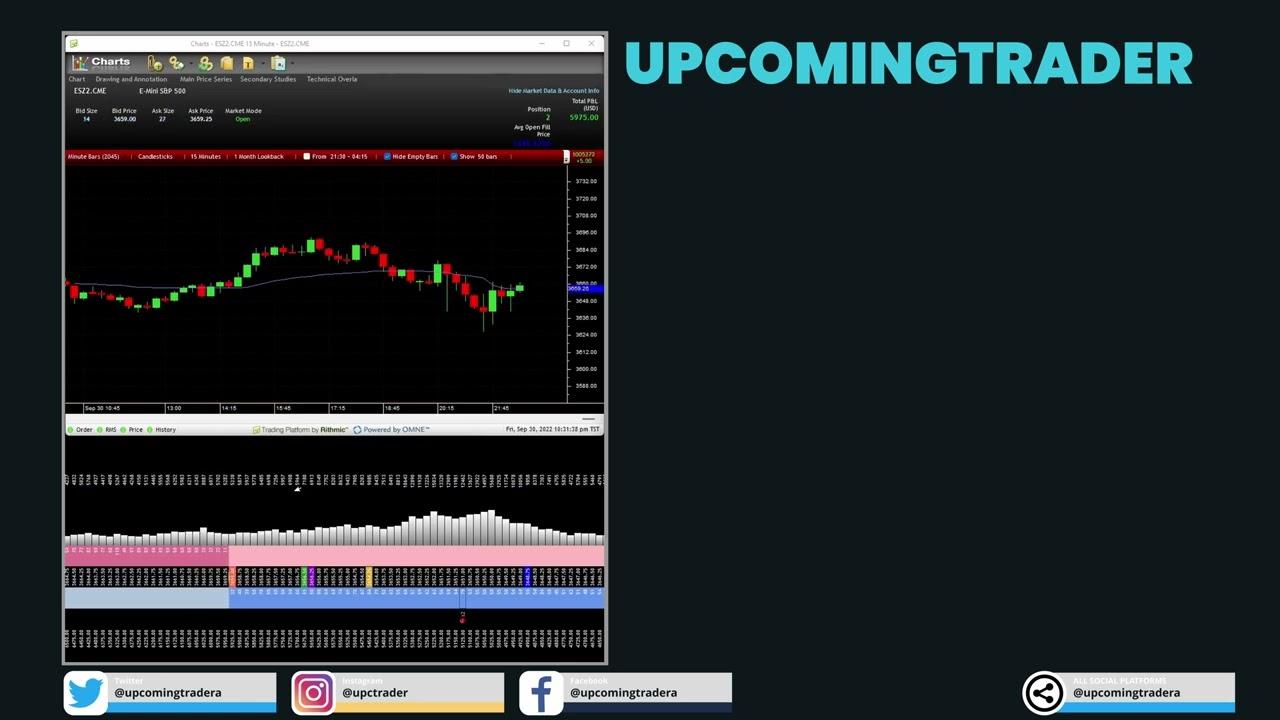Day Trading Stress: Navigating Emotions in the Futures Market


The Emotional Landscape of Day Trading
Day trading isn’t just about numbers, charts, and market analysis. It’s also about managing stress, fear, greed, and a myriad of other emotions that can influence decision-making. Recognizing and understanding these emotions is the first step to mastering them.
Futures Market Dynamics: The Psychological Challenges of Day Trading
The futures market, with its rapid price fluctuations and high leverage, presents unique psychological challenges for day traders.
- Trading Psychology and Greed: On the flip side of fear is greed, the desire to maximize profits. While ambition is crucial for success in day trading, unchecked greed can lead traders to ignore warning signs and overextend themselves, especially in the volatile futures market.
One of the most potent emotions in the trading world is fear. Whether it’s the fear of missing out (FOMO) on a potential profit or the fear of incurring a significant loss, this emotion can cloud judgment and lead to rash decisions. Effective risk management strategies are essential to mitigate this fear and trade with confidence.
- The Role of Stress in Day Trading: The fast-paced nature of day trading, especially in the futures market, can be stressful. Traders must learn to manage this stress, as it can impair cognitive functions and lead to poor decision-making.
Trading futures contracts can amplify emotional reactions due to the inherent leverage and potential for significant gains or losses.
Recognizing emotional responses and having a clear trading plan can help traders navigate these challenges.
Walking the Tightrope: The Financial and Emotional Risks
The futures market is a volatile space. Traders often find themselves walking a tightrope, balancing the potential for profit against the risk of loss. This balance isn’t just financial; it’s emotional. The anxiety of potential losses, living with constant worry, and the high-pressure environment can take a toll on even the most seasoned traders.
Decision Making Under Pressure
In the high-stakes pressure cooker of futures trading, stress can significantly impact decision-making. A single poor choice can set off a domino effect, leading to a series of bad trades. Recognizing the signs of stress and understanding its impact on decision-making is crucial for success.
The Emotional Tug of War: Fear vs. Greed
Two of the most powerful emotions in trading are fear and greed. They act as two sides of the same coin, constantly pulling traders in opposite directions. On one hand, fear can lead to overly cautious decisions, potentially missing out on profitable opportunities. On the other, greed can result in taking unnecessary risks. Striking a balance between these two emotions is essential for long-term success.
Futures Trading: The Amplified Emotional Rollercoaster
In the realm of futures trading, the stakes are often higher due to the inherent leverage associated with futures contracts.
This amplifies the emotional responses of traders, making the tug of war between fear and greed even more pronounced. A sudden surge in the futures market can elicit overwhelming greed, pushing traders to jump in without adequate analysis. Conversely, a sharp decline can trigger intense fear, causing hasty exits or deterring entry altogether. Understanding the unique dynamics of the futures market is crucial for traders to keep their emotions in check and make rational decisions.
Day Trading Psychology: Navigating the Daily Emotional Swings
Day trading, by its very nature, requires quick decisions based on short-term market movements. This rapid pace can exacerbate the emotional challenges posed by fear and greed. A day trader might experience the highs of a successful trade in the morning, only to be pulled down by the lows of a loss in the afternoon.
Implementing robust risk management strategies becomes paramount in this environment. By setting clear entry and exit points, stop-loss orders, and profit targets, traders can navigate the daily swings of the futures market with a level-headed approach, reducing the sway of detrimental emotions.
In essence, while the futures market offers vast opportunities, it also presents significant emotional challenges, especially for day traders.
Recognizing the powerful pull of fear and greed and equipping oneself with the right psychological tools and strategies is the key to sustained success in this volatile arena.
Building Resilience: Safe Trading Practices
Safe trading isn’t just about understanding the market; it’s about understanding oneself. By educating oneself, having a clear trading plan, practicing risk management, and staying informed, traders can build a foundation of resilience against the emotional challenges of the futures market.
Conclusion: The Path Forward The world of day trading, especially in the futures market, is fraught with challenges. But with the right knowledge, tools, and emotional strategies, traders can navigate this volatile space with confidence. Remember, the key to success isn’t just making the right decisions; it’s making them with clarity, confidence, and emotional control.
Excited by What You've Read?
There's more where that came from! Sign up now to receive personalized financial insights tailored to your interests.
Stay ahead of the curve - effortlessly.

